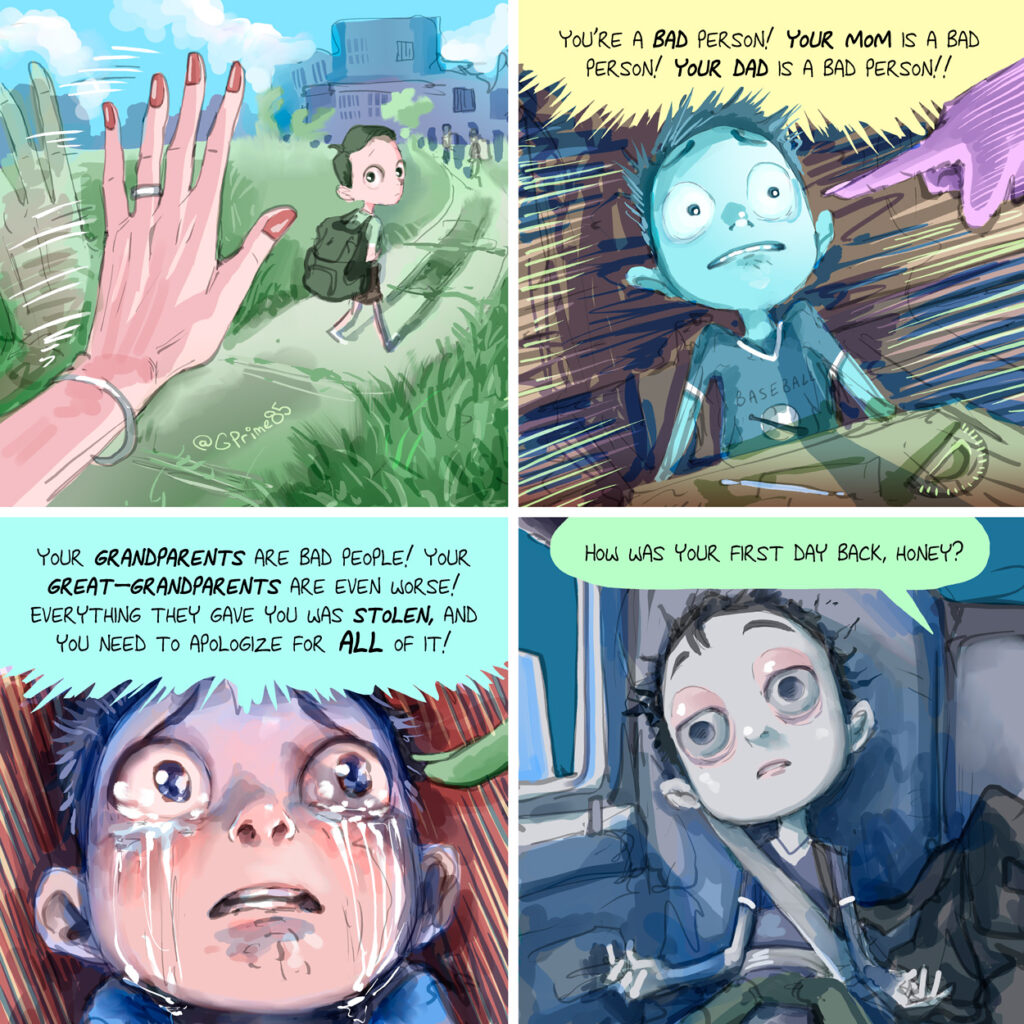Children must be taught how to think, not what to think. That axiom from Margaret Mead is one by which I have always abode when working with kids, in positions from librarian to tutor. If a child inquired about a controversial issue, I’d reply, “Well, that’s something that even adults have trouble agreeing on,” and leave it at that. The main reason I published my kid’s book under a pen name is because of this very blog — I would not wish for young fans of my fictional works to be unduly influenced by my political writings here, so I created a separate personal brand for such works.
Not all people subscribe to this ideal, however. This first became obvious in the mid-twenty-aughts with the release of children’s books with titles such as Why Mommy is a Democrat and Help! Mom! There Are Liberals Under My Bed!. The ad copy for those books openly and unabashedly touted them as means by which parents could impress their political beliefs upon their children. But at least it wasn’t as if children were coerced into reading such books and accepting their teachings by a governmental authority figure.
Times have changed. Nowadays children are prone to being fed sociopolitical talking points from their own teachers. One has openly admitted during a campaign rally that she considers education an instrument of “social justice,” which seems to translate to teaching students that all that is white and male is at the root of everything wrong with the world.

Let’s compare the public school teacher to another type of public servant: the police officer. Both professions are entrusted to wield authority over others, but the police face far more public scrutiny and criticism, especially over the last decade. By contrast, it seems almost heretical to question the trustworthiness of teachers. But is such immunity from criticism warranted or deserved?
One of the points made about the profession of law enforcement is that the people who are drawn to it as a career are precisely the sort of people whom you wouldn’t want as law enforcement officers. They relish the idea of being in a position of authority and the the ability to force others to submit to it. So what draws a person to the profession of teaching children? The starry-eyed will of course wax poetic about nurturing young minds and preparing the children that are our future, but there may be ulterior motives.
A noted way that children learn and behave (which is coincidentally mentioned in my book) is that they tend to accept the commands and teachings of adults whom they regard as authority figures without skepticism or second-guessing. There is an evolutionary advantage to this, evident in cases where a child’s hesitation to obey these adults would lead to unfortunate outcomes (“Get away from those train tracks!”). But another consequence of this behavior is that children will accept these teachings uncritically, regardless of the benefits or truth behind them.
As is the case with law enforcement, people may not have the purest of intentions at heart when they seek a career in early education. Some may view it as a means to impose their own social and political views upon their students, brainwashing them into believing claims however radical and baseless (“All white people are racist and nonwhite people can never be racist”) or demonstrably false (“Gender is just a social construct”) they may be. (Apologies for only using talking points from the far left as examples, but I’ve never heard of instances of teachers from the other side of the political spectrum doing this. Make of that what you will.)
When they can’t back up their claims in a good-faith debate, they resort to cheating to ensure the next generation will agree with them and vote the same way they do, no debates necessary. And they can do it without the approval or perhaps even the awareness of the students’ parents.
If we value children’s ability to think critically about controversial topics without undue influence from people who were not even selected for their job on the basis of the merit and validity of their political convictions, there needs to be more oversight of the ways in which teachers teach. If the “Defund the Police” movement can enter the national political stage as something that warrants serious consideration, surely it wouldn’t be verboten to suggest a fraction of such pushback be applied to teachers.